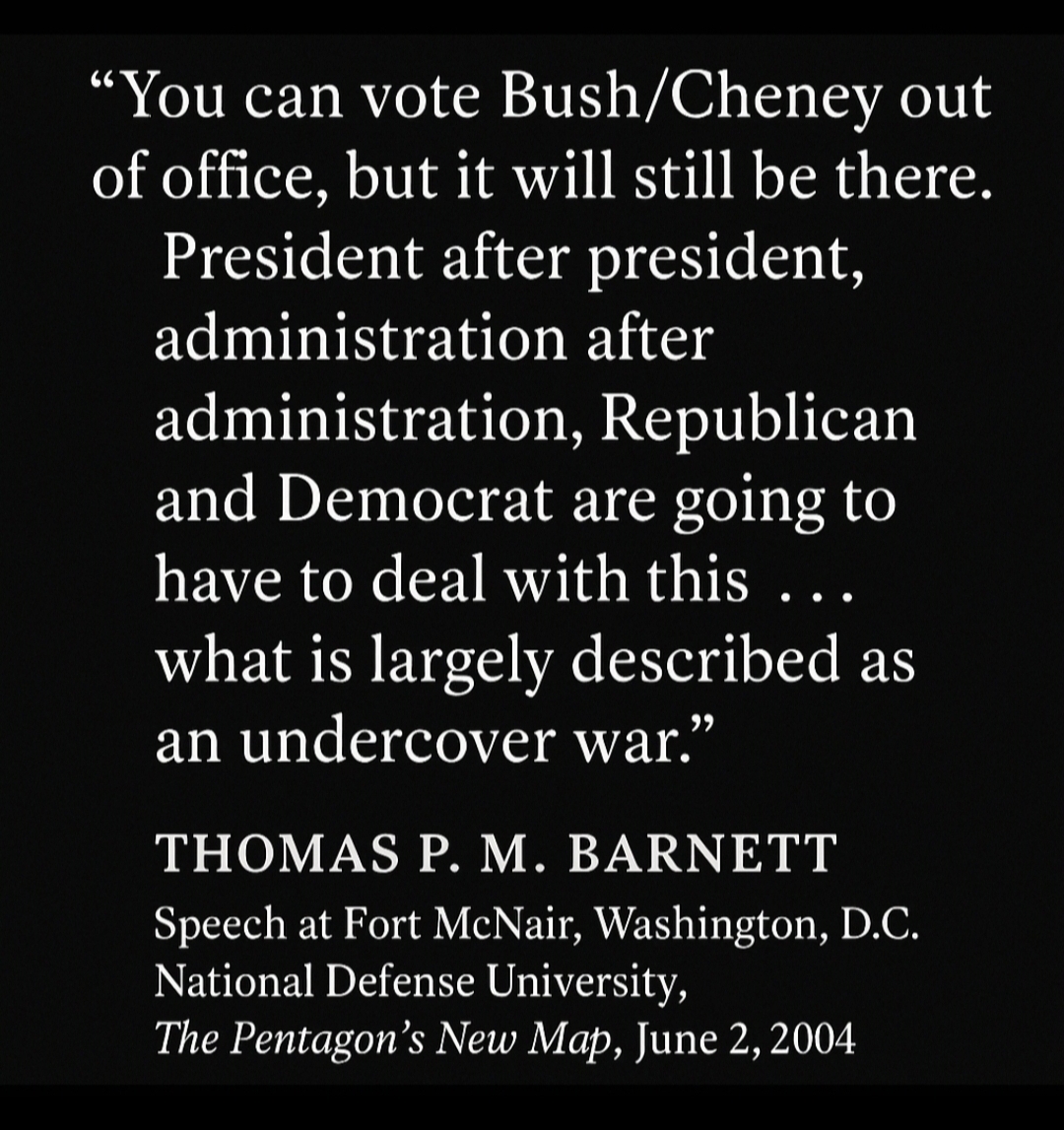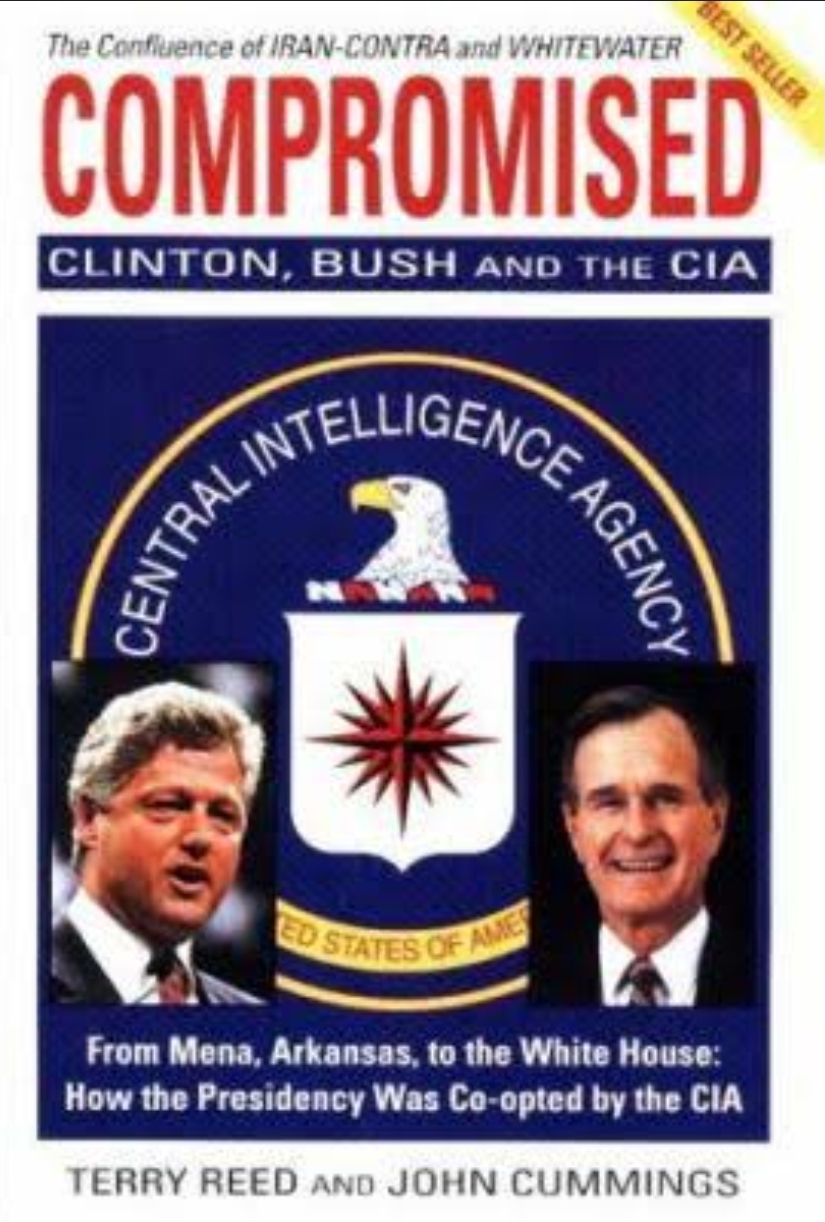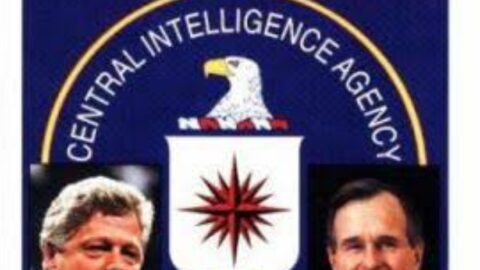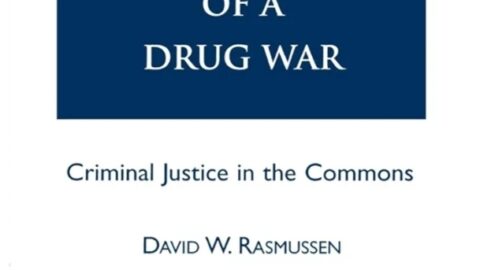Compromised: Clinton, Bush, and the CIA
By the time most Americans noticed Congress bending the knee to AIPAC, the capture was already decades old. The “Israel lobby moment” we’re watching now is not the origin story of our lost Republic—it’s a late-stage symptom. Long before members of Congress were reading talking points drafted by foreign policy lobbies, the American presidency itself was being wrapped in the invisible wires of the national security state.
This story doesn’t begin with Netanyahu, or even with 9/11. It runs back through Iran-Contra, through the cocaine-and-guns pipelines of the 1980s, through the quiet rise of a one-party foreign policy consensus that outlived any election. At the center of that story stand two political dynasties that were sold to the public as rivals: George H.W. Bush—the oil man, CIA director, and “realist” patrician—and Bill Clinton—the baby-boomer populist from a small Southern state. On paper, they couldn’t have been more different. In practice, they functioned like two managers of the same long-running operation.
Compromised: Clinton, Bush, and the CIA asks a simple but unnerving question: if the intelligence apparatus ever truly captured the Oval Office, did it ever let go? Once covert money, covert wars, and covert files became fused with presidential power, could any administration that followed honestly claim independence? The continuity of policy—from Central America to the Balkans to the Middle East; from financial deregulation to the drug war to mass surveillance—suggests that elections changed faces, not direction.
In that light, AIPAC and similar lobbies look less like the root of our current corruption and more like metastasis—new branches growing from an older, deeper tumor. What we are living through today on Capitol Hill is the visible flowering of a system that was designed, refined, and protected in the Bush–Clinton years: a fusion of intelligence, finance, organized crime, and foreign influence, all wrapped in patriotic language and sold as “national security.” This article follows that trail back to its source and asks what it would take—not just to expose it—but to break its hold.

“Compromised: Clinton, Bush and the CIA” by Terry Reed and John Cummings is a controversial and explosive account published in 1995, which delves into alleged covert operations involving the U.S. government, the CIA, and prominent political figures like Bill Clinton and George H.W. Bush.
The Iran-Contra Affair:
- The book revolves around the infamous Iran-Contra scandal, which involved the covert sale of arms to Iran in exchange for hostages and the funneling of profits to fund the Contra rebels in Nicaragua. According to Reed, this operation was much broader than officially admitted.
- The authors claim that both Bill Clinton, while governor of Arkansas, and George H.W. Bush, during his tenure as Vice President, were complicit in facilitating these illegal activities through the state of Arkansas.
Mena, Arkansas, and CIA Operations:
- A significant portion of the book focuses on Mena, Arkansas, a small town that became the center of alleged CIA operations. Reed argues that the Mena airport was a hub for clandestine activities, including drug trafficking and covert arms deals.
- Reed, a former Air Force pilot and CIA operative, claims that the CIA used Mena as a base for their covert operations, with Clinton, as governor, turning a blind eye in exchange for political favors.
CIA’s Drug Trafficking Allegations:
- One of the most sensational allegations in the book is that the CIA, in coordination with government officials, was involved in drug trafficking to fund covert operations, particularly the Contra war in Nicaragua.
- Reed suggests that planes flying out of Mena were not only carrying arms to Central America but were also bringing back drugs, particularly cocaine, which was then distributed in the U.S. The profits from these illegal activities were allegedly used to fund CIA operations.
Political Corruption:
- The book portrays both Bill Clinton and George H.W. Bush as deeply involved in these illegal activities, suggesting that political power was gained and maintained through their complicity in the CIA’s covert operations.
- Reed accuses Clinton of allowing Arkansas to become a hub for CIA drug operations in return for support from the intelligence community and financial backing for his political career. Bush, on the other hand, is depicted as a key orchestrator, leveraging his position in government to facilitate these operations.
Terry Reed’s Personal Involvement:
- Terry Reed, a former CIA asset and military contractor, provides a firsthand account of his involvement in these covert activities. He claims to have been recruited by the CIA and to have played a key role in the operations based out of Mena.
- Reed details how he eventually became disillusioned with the CIA and the corruption he witnessed. His refusal to continue participating in illegal activities led to threats, legal trouble, and ultimately his decision to blow the whistle.
The Cover-up:
- The book argues that there was a massive cover-up of these operations, with both the Clinton and Bush administrations working to suppress the truth. Reed alleges that key witnesses were silenced, documents were destroyed, and investigations were blocked.
- According to the authors, mainstream media and the government worked together to dismiss or discredit those who tried to expose these activities.
Media Suppression:
- The authors claim that there was a concerted effort to prevent these revelations from becoming public knowledge. Reed and Cummings describe how mainstream media, government officials, and intelligence agencies allegedly worked together to keep the truth hidden.
Impact on American Politics:
- Reed and Cummings argue that the events in Mena and the Iran-Contra scandal had long-lasting implications for American politics. They suggest that political figures like Clinton and Bush were able to rise to power because of their involvement in covert operations and their willingness to cooperate with the CIA.
- The book paints a picture of a shadow government operating behind the scenes, where political corruption and illegal activities are the norm.
Controversy and Criticism:
“Compromised” is a highly controversial book, with many critics questioning its credibility. The allegations made by Reed are sensational and have been the subject of intense debate. Some view the book as a compelling exposé of government corruption, while others dismiss it as a conspiracy theory without sufficient evidence. Nevertheless, the book has gained a cult following among those who believe in the existence of deep political corruption and covert CIA operations.
The book remains relevant to those interested in the darker side of U.S. politics and intelligence operations, especially as it touches on key figures and events from the late 20th century, including the rise of Bill Clinton and the legacy of George H.W. Bush.






